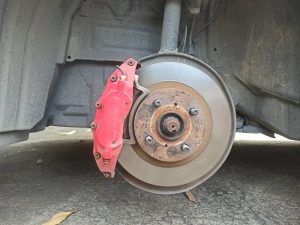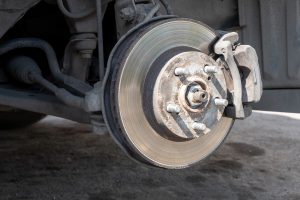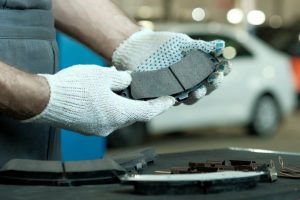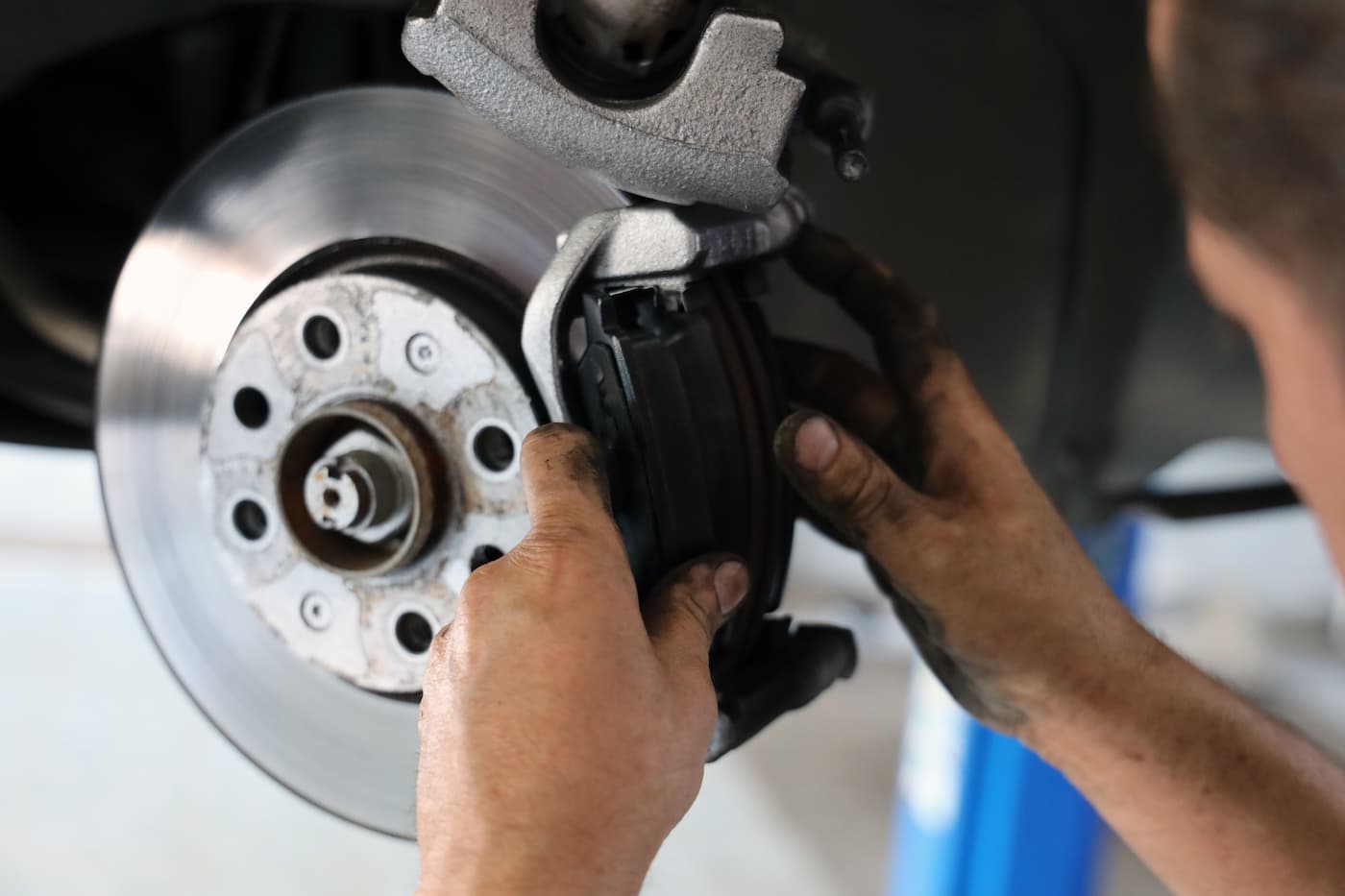Your car’s brakes are one of its most important safety features. Yet, many drivers don’t think much about them until something goes wrong! Knowing how long brake pads should last and when to replace them can save you money and keep you safe on the road. In this guide, we’ll explain everything you need to know about brake pads, including how to inspect them, the signs of wear, and how long replacements take.
What Affects Brake Pad Lifespan?
Brake pads don’t last forever, but their lifespan can vary depending on several factors. On average, brake pads can last anywhere from 40,000 to 105,000 kilometres, but these numbers depend on the following:
1. Driving Habits
Do you brake hard at every stoplight or cruise gently to a stop? Aggressive braking (especially in city traffic) wears down your brake pads faster. On the flip side, smooth driving can extend their life.
2. Your Vehicle Type
Heavier vehicles, like 4WDs or SUVs, put more pressure on the brakes, causing the pads to wear down quicker compared to smaller cars.
3. Brake Pad Material
Brake pads come in different materials, each with its pros and cons:
- Ceramic pads: Durable and quiet but more expensive.
- Semi-metallic pads: Affordable and effective, but they can wear faster.
- Organic pads: Budget-friendly but less durable, ideal for light driving.
4. Driving Conditions
If you drive in hilly areas or spend most of your time in stop-and-go traffic, your brakes are under more strain, meaning your brake pads will wear out faster.
How Long Do Brake Pads Last?
As mentioned earlier, brake pads typically last 40,000 to 105,000 kilometres, but there’s no one-size-fits-all answer. It’s important to check your car’s owner’s manual for recommendations specific to your vehicle. If you’re unsure, book an inspection with a trusted mechanic to ensure your brakes are in top shape.
Signs Your Brake Pads Need Replacing
Not sure if your brake pads need attention? Keep an eye (or ear) out for these signs:
1. Squealing or Squeaking
A high-pitched noise when braking is often the first sign of worn brake pads. It’s caused by a built-in indicator that alerts you to the problem.
2. Grinding Sound
If you hear grinding, your pads are likely completely worn out, and the metal backing is scraping against the rotor. At this stage, it’s urgent to replace them to avoid costly repairs.
3. Reduced Responsiveness
Does your brake pedal feel softer than usual? This could indicate that your brake pads are thinning and losing their effectiveness.
4. Vibrations When Braking
A shaking or pulsating brake pedal can mean your brake pads are unevenly worn or your rotors are warped.
5. Dashboard Warning Light
Some cars have a brake pad wear indicator light on the dashboard. If it lights up, don’t ignore it—get your brakes checked immediately.
How to Inspect Brake Pads
You don’t have to be a professional mechanic to get a quick sense of your brake pad condition. Here’s how you can inspect them:
- Visual Check: Look through the wheel spokes. If the brake pads look thinner than 3mm, it’s time to replace them.
- Listen for Noises: Pay attention to any squeaking, squealing, or grinding when you brake.
- Feel for Vibrations: If the car shakes when braking, it could point to uneven pad wear or rotor issues.
- Professional Inspection: When in doubt, book an inspection with your mechanic. Regular check-ups ensure safety and prevent expensive repairs.
How Long Does It Take to Replace Brake Pads?
Replacing brake pads is a relatively quick job for a professional mechanic. On average, it takes about 1 to 2 hours. However, this can vary depending on:
- The type of car you drive.
- Whether the rotors also need to be resurfaced or replaced.
- Any additional brake system maintenance that’s required.
If you’re tackling the job yourself, be prepared to spend more time, especially if it’s your first go!
Why Regular Brake Maintenance Matters
Staying on top of your brake pad maintenance isn’t just about saving money—it’s about keeping you and your loved ones safe. Here’s why brake repairs important:
- Safety First: Healthy brake pads ensure your car stops effectively in all conditions and you don’t have an accident that requires a tow truck.
- Save Money Long-Term: Replacing worn pads on time prevents damage to rotors and other brake components.
- Maintain Performance: Fresh brake pads keep your car responsive and road-ready.
Conclusion: Don’t Ignore Your Brakes!
Brake pads are a small but critical part of your car’s safety system. While they can last a long time, factors like driving habits, vehicle type, and road conditions can affect their lifespan. By paying attention to warning signs and getting regular inspections, you’ll keep your brakes in excellent condition.
Still unsure about your brake pads? At Rossi Mechanical, we’re here to help. Whether you need an inspection, replacement, or advice, our team has got you covered. Call us today on (08) 6290 6442 or book a service online—your safety is our priority!




